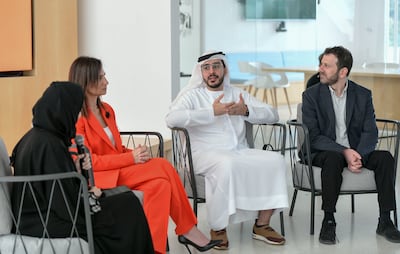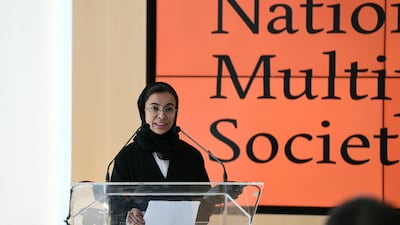The UAE has launched a National Multiple Sclerosis Society to help improve the quality of life for people affected by the disease.
It will deliver support programmes, improve healthcare services and provide a community for people in the Emirates affected by MS.
NMSS, established as an NGO under the Ministry of Community Development, wants to reduce the stigma surrounding the disease and support research to identify better treatments and ultimately find a cure.
Fatima Al Kaabi, vice chair of the NMSS and executive director of the Bone Marrow Transplant Programme at the Abu Dhabi Stem Cells Centre (ADSCC), announced research grants worth Dh2 million to support local and international researchers working to develop new treatments and to give a greater understanding into the characteristics of the disease that specifically affect those in the UAE.

Multiple sclerosis (MS) is a neurological condition that can affect the brain and spinal cord.
It can cause a wide range of symptoms, including problems with vision, arm or leg movement, sensation or balance.
The severity of the disease varies greatly, with some patients showing very mild symptoms and others bedridden or in a wheelchair.
The disease causes the immune system to attack the protective layer that covers nerve fibres (the myelin sheath), preventing brain signals from properly reaching other parts of the body.
It is a lifelong condition with no known cure or cause, although there are treatments to manage symptoms.
Recently Abu Dhabi had its first autologous stem cell transplant for a Syrian girl in her twenties with progressive MS.
The young girl had difficulty walking and controlling her bladder. After the transplant, she was able to walk independently and had regained control over her bladder.
New registry
The NMSS said 2,000 people in the UAE have been given a positive diagnosis for the disease, although the actual number of people living with MS is thought to be more than double that.
In line with global trends, women in the UAE are three times more likely to develop MS than men. People with MS are typically given a diagnosis in young adulthood, between the ages of 20 and 40.
Worldwide there are an estimated 2.8 million people living with MS (35.9 per 100,000 population).
MS prevalence has increased in every world region since 2013.
Dr Al Kaabi announced a national MS registry to track the number of people with MS and the progression of the disease in the UAE, developed in partnership with Abu Dhabi Department of Health, Abu Dhabi Public Health Centre and G42.
“Every person with MS deserves to live an empowered and fulfilling life by having access to the best possible care," Dr Al Kaabi said.
"NMSS will be a critical partner in delivering this vision as we progress with building an ecosystem of support across the UAE. Everything we do will be informed by the experiences of those living with MS – we will listen to and learn from them.
“The society will also be a scientific and research partner for global organisations in the MS field. It will leverage the UAE’s unique expertise to drive innovation and partnerships to find better treatments for MS, and move towards the goal of an MS-free future.”

